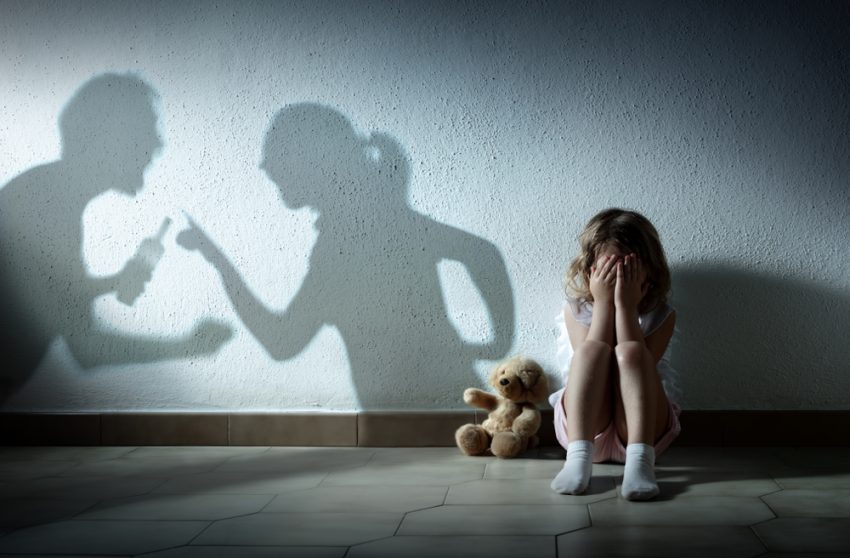According to the World Psychiatry, the official journal of the World Psychiatric Association (WPA), an increasing number of children across the world experience family instability due to divorce/separation and the effects of divorce on children’s mental health of non-marital childbearing/cohabitation.
Evidence from both academic and empirical studies has shown that divorce and separation of parents can cause many problems in children and adolescents. These problems include low moods, academic problems (e.g. lower grades, school dropouts), and disruptive behavior (e.g. conduct and substance abuse problems).
Why is divorce bad for children’s mental health?
Researchers suggest that significant differences in children’s behavior between those of divorced parents and those of non-divorced parent are not due to separation or divorce, but rather the lack of social support provided by parents and their children’s perceptions of the destructive nature of interparental conflicts. In times of crisis or need, social support is having people to whom you can turn, such as family members, in order to gain a positive self-image and a wider perspective.
Families, school personnel, and friends are the main sources of support for adolescents and children. Interparental violence can be destructive if it includes hostility and aggression. Researchers have found that children who are unable to cope with marital conflict and feel threatened may develop anxiety. Children who blame themselves may experience low self-esteem and depression symptoms.
Some parents are left with no choice but to divorce their marriages when they find that the marriage has ended. While all parents have concerns, from the future of their home to the uncertainty surrounding the custody arrangements, they may be most concerned about the way their children will cope with the divorce. What are the psychological impacts of divorce on the mental health of children? It depends. Some kids recover faster than others. Parents can reduce the psychological impact of divorce on their children’s mental well-being. Some supportive parenting techniques can help kids cope with the changes that divorce brings.
Research has shown that children struggle most in the first two years after divorce. Children are likely to feel distress, anger and anxiety. Many kids bounce back. Many kids adjust to the changes and become comfortable in their new living situation. Some children, however, may never return to “normal” after their parents divorce. They could experience lifelong problems.
Children’s mental health and divorce: emotional effects
Children can find divorce confusing and frightening.
- Children often have difficulty understanding why they are required to travel between two homes. Children may fear that one day, if both parents stop loving each other, they will stop loving themselves.
- They may think that they are responsible for the divorce. They may think they have misbehaved, or that they are guilty.
- Divorce and its effects can make teenagers angry. They may blame one parent or both for the divorce or resentment towards one or both of their parents.
Each situation is different. A child might feel relieved if the divorce results in fewer arguments or less stress.
Stress Associated with Divorce
Children who divorce lose contact with their fathers, or one of them, every day. Researchers have found that decreased contact can affect the parent-child relationship and many children feel closer to their fathers following divorce. Relationships with the child’s custodial parent, most often the mother, are another effect of divorce on mental health. Single parenting is often associated with higher stress levels among primary caregivers. Separation of parents isn’t always the most difficult part for some children. Divorce is made more difficult by the stressors that accompany it.
Divorce is made more difficult by stressors such as moving schools, living in a new house, or having a single parent. Divorce can also lead to financial hardship. Families often move into smaller homes, or to new neighborhoods. They also have less material resources.
Family Risks
Pew Research Center reports that in 2013, about 40% of all new marriages took place in the U.S., and 20% involved both spouses who were previously married. This means that many children have to deal with constant changes in their family dynamics. Another big change can be the addition of a new stepparent, and perhaps several stepsiblings. And, quite often, both parents remarry. This means that kids will have to adjust to many new things.
Mental Health Problems
Divorce can have a negative impact on the mental health of children. This may lead to mental health issues in adolescents and children. Children of divorced parents are more likely to experience psychological issues, regardless of their age, gender or culture. Children may experience an adjustment disorder after divorce that will resolve within a few weeks. Studies have shown that children of divorced parents are more likely to suffer from depression and anxiety.
Behavior Problems
Children in divorced families are more likely to experience externalizing problems such as conduct disorders and delinquency. Impulsive behavior is also more common among kids who come from two-parent homes. Children may experience increased conflict with their peers as well as more behavior problems after a divorce.
Subpar Academic Achievement
Children of divorced parents tend to perform less well in school and have more trouble if it was an unexpected divorce. However, children of families where divorce is likely did not have the same result.
Taking Chances
Teenagers with divorced parent are more likely than their peers to engage in risky behaviors, including substance abuse and early sexual activity. In the United States adolescents with divorced parent drink alcohol sooner and report higher levels of alcohol, marijuana and tobacco use than their peers. Teenagers who divorced their parents when they were five years old or younger are at a higher risk of becoming sexually active before the age 16. Separation from the father is also associated with a higher number of sexual partners in adolescence.
Helping Children Adjust
Adults who have experienced divorce as children may experience more difficulties in their relationships. People whose parents divorced have higher divorce rates. Children’s adjustment to divorce is heavily influenced by their parents. Here are some strategies to reduce the mental effects of divorce on a child’s mental well-being:
Parenting Peacefully: It has been proven that intense conflict between parents increases children’s stress. behavioral problems are linked to overt hostility such as screaming or threatening each other. Minor tension can also cause a child to be distressed. Seek professional help if you are having difficulty co-parenting with your ex.
It’s not appropriate to ask children to decide which parent they prefer or to give them messages to send to other parents. Children who are caught in the middle of conflict and disagreements may experience anxiety or depression.
Maintain Healthy relationships: Positive communications, parental warmth and low conflict levels may help children better adjust to divorce. It has been proven that a healthy relationship between parents and children can help children develop a higher sense of self-worth and improve their academic performance after divorce.
Consistently Discipline Your Children: Set age-appropriate rules, and enforce them when necessary. Research shows that effective discipline following divorce reduces delinquency, and improves academic performance.
Monitor Adolescents: When you pay attention to the activities of teens and their friends, they are less likely than not to have behavior issues after a divorce. This means that there is less chance of substance abuse and academic issues.
Empower Children: Kids that doubt their abilities to cope with changes, and those that see themselves as helpless victim are more likely than others to suffer from mental health issues. Teach your children that divorce can be difficult but they have the mental strength to deal with it.
Teach Coping: Children who have active coping skills such as problem-solving and cognitive restructuring are better able to adapt to divorce. Teach your children how to control their thoughts, emotions, and behaviors.
Make Kids Feel Safe: The fear of abandonment or worries about the future may cause anxiety. Helping your child to feel safe and loved can reduce clinginess, as well as the risk of mental problems.
Look for Parent Education: Many programs are available to reduce the impact of divorce on children. Parents learn co-parenting techniques and strategies to help kids adjust.
Seek professional help: Reduce your stress levels to benefit your child. Consider talking therapy or other resources that can help you cope with the changes occurring in your family.
What to do if your child needs help?
Even though divorce can be difficult for families, staying together solely for the sake of your children might not be the best choice. Children who grow up in homes where there is a lot arguing, hostility and discontent may be more likely to develop mental health problems and behavioral issues. It’s not uncommon for children to experience a period of adjustment after parental separation.
If your child’s behavior or mood problems persist, you should seek professional assistance. Your child may benefit from individual therapy to help him sort out his feelings. Families may benefit from family therapy to deal with changes in dynamics. Support groups for children are also offered by some communities. Support groups are a way for kids of certain ages to connect with others who may have experienced similar changes in their family structure.

